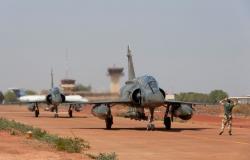From one forehead to another. After more than a year of war against Hamas and Hezbollah, and when it must start a partial withdrawal from the South Lebanon, the Israeli army now extends its operations in Syrian territory. Since the fall of President Bashar al-Assad, and the taking of Damascus by the rebels led by the HTS Islamists, Tsahal led at least 300 air strikes on military sites of the fallen regime.
Russian manufacturing combat planes, anti -aircraft batteries, radars, tanks, weapons stocks and production factories have been methodically destroyed. On the Mediterranean coast, in the ports of al-Bayda and Lattaquié, several ships of the Syrian navy carrying Mer-Mer-Mer missiles were sunk. A scientific research center linked to the Syrian chemical armament program has also been bombed. “In the eyes of Israel, Syria is not a unified country and it is better to prevent sophisticated weapons from falling into bad hands,” said Shmuel Rosner, researcher at the “Jewish People Policy Institute” research center ” of Jerusalem. “Too bad if it creates an antagonism with the rebels. »»
“It’s a dangerous provocation”
In addition, on Sunday, the Hebrew state took hold of the Syrian slope of Mont Hermon. Damascus is now only 40 km from this buffer area located at the edge of the occupied Golan Plateau annexed by Israel. Could this new advance in Syrian territory be the prelude to a new expansion of the only state in the world whose constitution does not provide for fixed borders? According to the UN, it is, in any case, a flagrant “violation” of the 1974 disengagement agreement, while such Aviv affirms that this “temporary” measure aims to ensure the security of Israel. The annexed Golan “will be part of the State of Israel for eternity” said Prime Minister Benjamin Nethanyahu, still under an international arrest warrant for crimes against the humanity.
“It is a dangerous provocation,” said Michel Duclos, a former French ambassador to Syria and special advisor at the Montaigne Institute. “If the local Syrian groups represented a real danger for Israel, we would have been able to know for a long time. I fear a form of opportunism. »»
Swiss






